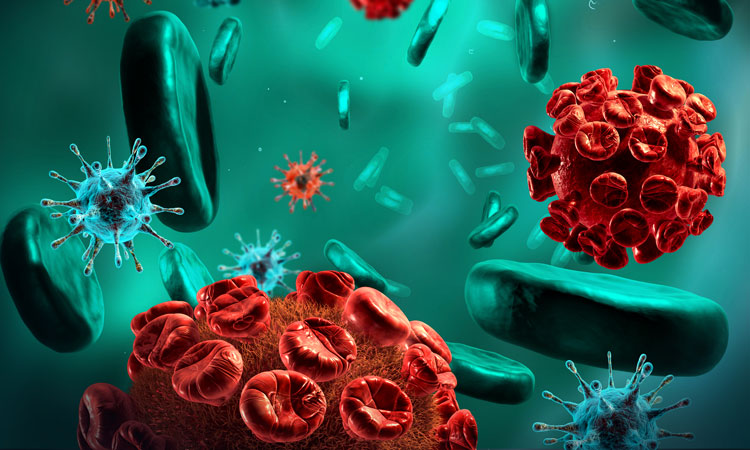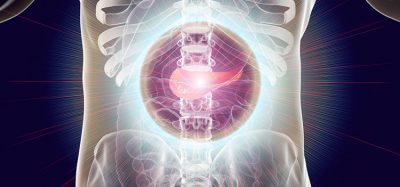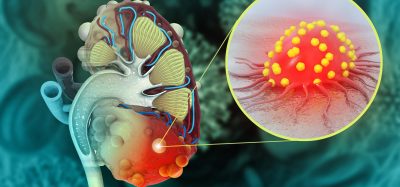Mutated DECTIN-1 and its implications for autoimmune disease
Posted: 7 December 2023 | Drug Target Review | No comments yet
A discovery about the mutated protein DECTIN-1, that limits the production of T regulatory cells, could lead to more effective drugs.


Researchers from The Australian National University (ANU), collaborating with the University of Queensland and the Francis Crick Institute, have discovered that a protein in the immune system programmed to protect the body from fungal infections is also responsible for worsening the severity of certain autoimmune diseases like irritable bowel disease (IBS), Type 1 diabetes and eczema.
This finding could result in new and more effective drugs that do not have the undesirable side effects of existing treatments, that suppress the entire immune system rather than targeting a specific area. Additionally, this breakthrough may help treat all types of cancer.
A protein called DECTIN-1, has a previously unknown function: in its mutated state, it limits the production of T regulatory cells, termed ‘guardian’ cells, in the immune system.
These guardian cells are essential for preventing autoimmune disease because they suppress the effects of a hyperactive immune system, which can be very dangerous if not properly regulated as it turns the body’s natural defences against itself.
“Although the DECTIN-1 protein helps to fight fungal infections, in its mutated state it’s also responsible for exacerbating severe autoimmune disease.”
Lead author Dr Cynthia Turnbull, from ANU, explained: “When this happens, the immune system wrongly perceives healthy cells as a threat, causing it to attack the body and promote the onset of autoimmune disease.” She continued: “Although the DECTIN-1 protein helps to fight fungal infections, in its mutated state it’s also responsible for exacerbating severe autoimmune disease.”
Controlling the immune system
The researchers believe they can control the immune system by turning the DECTIN-1 protein on and off. “Turning on the protein would lower the intensity of the immune system’s defensive response which would help to treat conditions such as autoimmune disease,” stated Professor Carola Vinuesa from the Francis Crick Institute.
“On the other hand, turning off the protein could give the immune system a boost, sending its defensive mechanisms into overdrive and allowing the body to treat an entirely different set of diseases.”
Dr Vinuesa added: “The findings are exciting because there haven’t been many discoveries of so-called modifier proteins such as DECTIN-1, which can change the way the immune system behaves to the extent it can either cause a disease or prevent it.”
“We think that by using drugs to turn off the DECTIN-1 protein, in combination with existing therapies, we can activate the immune system and help it identify and attack the cancerous cells.”
This means that DECTIN-1 could have a crucial role in cancer treatment, according to Dr Turnbull. “Cancer cells can disguise themselves by releasing certain proteins and chemicals into the body that essentially render them invisible from the immune system’s natural defences,” she said.
“We think that by using drugs to turn off the DECTIN-1 protein, in combination with existing therapies, we can activate the immune system and help it identify and attack the cancerous cells.”
Further protein mutations
The DNA of a Spanish family was studied by the researchers. They found the DECTIN-1 mutation was responsible for exacerbating the severity of a chronic autoimmune disease suffered by the family’s only child.
“We found the family was also carrying a mutated version of another immune system protein known as CTLA-4. The CTLA-4 mutation prevents guardian cells from working properly and is known to cause severe autoimmune disease in about 60 to 70 percent of people who carry it in their DNA,” said Dr Pablo Canete from the University of Queensland.
“We finally have an explanation for why some people develop severe autoimmune diseases while others don’t, even if they inherit gene mutations passed down from family members.”
“We discovered the family’s only child had both the DECTIN-1 mutation and the CTLA4 mutation, while his parents had only one of each.” This assisted the identification of why the child was the only person in the family to develop severe autoimmunity.
Dr Canete concluded: “By discovering the existence of mutated versions of modifier proteins such as DECTIN-1, we finally have an explanation for why some people develop severe autoimmune diseases while others don’t, even if they inherit gene mutations passed down from family members.”
The research is published in Science Advances.
Related conditions
Cancer, Eczema, Irritable Bowel Diseases (IBD), type 1 diabetes
Related organisations
Francis Crick Institute, The Australian National University (ANU), The University of Queensland








